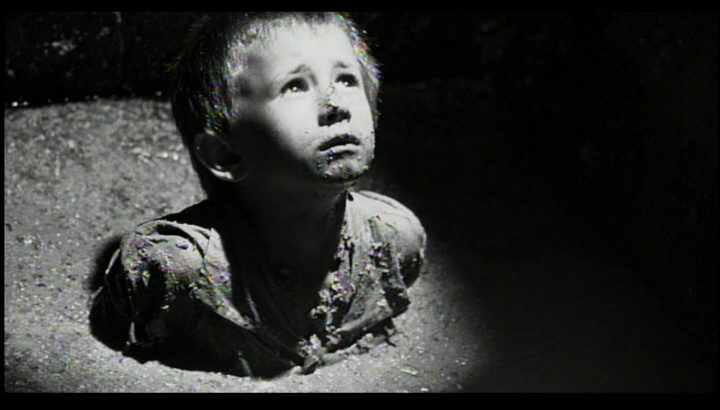At the present historical moment, Americans live in a society in which thinking is viewed as an act of stupidity, and ignorance is treated as a virtue. Literacy is now regarded with disdain, words are reduced to data, and science is confused with pseudo-science. For instance, two thirds of the American public believe creationism should be taught in schools and most of the Republicans in Congress do not believe that climate change is caused by human activity, making the U.S. the laughing stock of the world. News has become entertainment and echoes reality rather than interrogating it. Popular culture revels in the spectacles of shock and violence. Unsurprisingly, education in the larger culture has become a disimagination machine, a tool for legitimizing ignorance, and it is central to the formation of an authoritarian politics that has gutted all those public spheres in which thoughtfulness, critical exchange, and informed dialogue can take place.
Illiteracy has become a scourge and a political tool designed primarily to make war on language, meaning, thinking, and the capacity for critical thought. Illiteracy no longer simply marks populations immersed in poverty with little access to quality education; nor does it only suggests the lack of proficient skills enabling people to read and write with a degree of understanding and fluency. More importantly, illiteracy is about what it means not to be able to act from a position of thoughtfulness, informed judgment, and critical agency. It suggests not only learning the skills and knowledge to understand the world but also to intervene in it and change it when necessary. Illiteracy has become a form of political repression that discourages a culture of questioning, renders agency as an act of intervention inoperable, and restages power as a mode of domination. It is precisely this mode of illiteracy that both privatizes and kills the imagination by poisoning it with falsehoods, consumer fantasies, data loops, and the need for instant gratification.
This is a mode of manufactured illiteracy and education that has no language for relating the self to public life, social responsibility or the demands of citizenship. It is important to recognize that the rise of this new mode of illiteracy is not simply about the failure of public and higher education to create critical and active citizens; it is about a society that eliminates those public spheres that make thinking possible while imposing a culture of fear in which there is the looming threat that anyone who holds power accountable will be ignored or punished. At stake here is not only the crisis of a democratic society, but a crisis of memory, ethics, and agency.
What role might education and critical pedagogy have in a society in which the public goods disappear, emotional life collapses into the therapeutic, and education is reduced to either a private affair or a kind of algorithmic mode of regulation in which everything is reduced to a market-based outcome. What role can education play to challenge the deadly claim of casino capitalism that all problems are individual, regardless of whether the roots of such problems lie in larger systemic forces? In a culture drowning in a new love affair with instrumental rationality, it is not surprising that values that are not measurable — compassion, vision, the imagination, trust, solidarity, care for the other, and a passion for justice — wither.
One of the challenges facing the current generation of educators, students, progressives, and other cultural workers is the need to address the role they might play in educating students to be critically engaged agents, attentive to addressing important social issues and being alert to the responsibility of deepening and expanding the meaning and practices of a vibrant democracy. At the heart of such a challenge is the question of what education should accomplish, not simply in a democracy but at an historical moment when the United States is about to slip into the dark night of authoritarianism. In a world in which there is an increasing abandonment of egalitarian and democratic impulses, what will it take to educate young people and the broader polity to challenge authority and hold power accountable? How might we construct an education capable of providing students with the skills, ideas, values, and authority necessary for them to nourish a substantive democracy, recognize anti-democratic forms of power, and to fight deeply rooted injustices in a society and world founded on systemic economic, racial, and gendered inequalities? What will it take for educators to recognize that the culture of education is not simply about the business of culture but is crucial to provide the conditions for students to address how knowledge is related to the power of both self-definition and social agency? What work do educators have to do to create the economic, political, and ethical conditions necessary to endow young people and the general public with the capacities to think, question, doubt, imagine the unimaginable, and defend education as essential for inspiring and energizing the citizens necessary for the existence of a robust democracy?
.
Henry A. Giroux is a widely published social critic and McMaster University professor who holds the McMaster Chair for Scholarship in the Public Interest, the Paulo Freire Distinguished Scholar Chair and is a Visiting Distinguished University Professor at Ryerson University. Born in Rhode Island, he held numerous academic positions in the U.S. and now lives in Hamilton.








 Users Today : 7
Users Today : 7 Total Users : 35460270
Total Users : 35460270 Views Today : 8
Views Today : 8 Total views : 3418976
Total views : 3418976